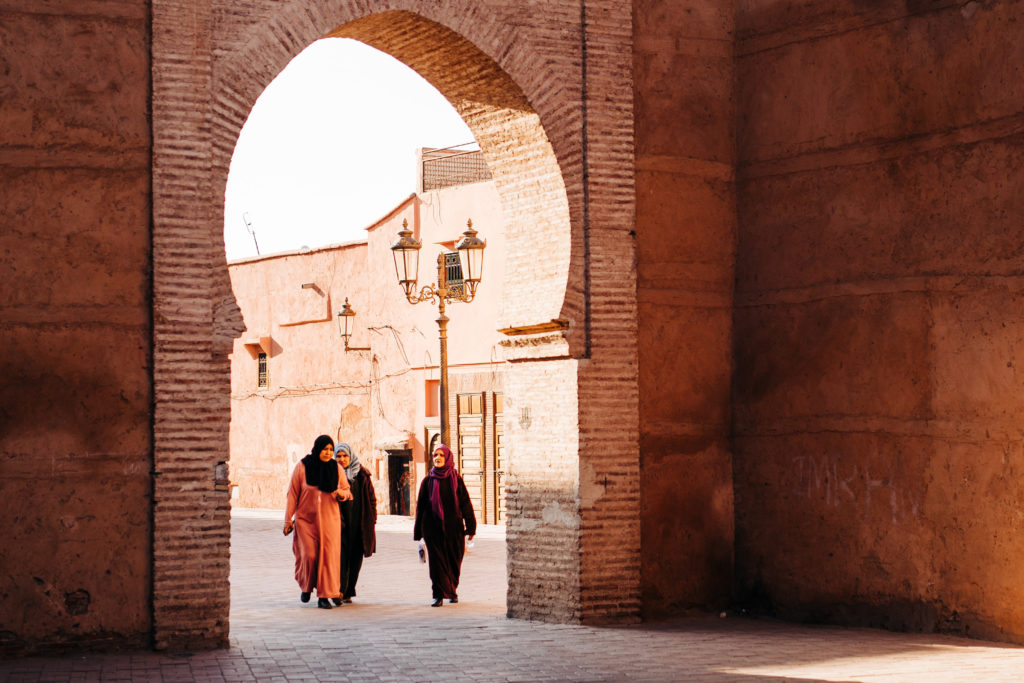Because these people groups are completely unfamiliar with the gospel, those going to the mission field to reach them must usually start from scratch. In these areas, there are very few—if any—foreign or local believers already working to make in-roads with the gospel, so there is no one to give cultural insight to new missionaries, or even to help them learn the language or get around as outsiders.
So how do we reach these unreached people groups (UPGs) who don’t have access to the gospel? What skills does a missionary need?
1. Be a Humble Learner
First, you need to be a humble learner, relying on God’s power and direction. God wants to use you as he draws all people to himself, but only he has the power to change someone’s heart—including yours.
You must be willing to make a fool of yourself as you learn a new language—and you must learn the language of the people you want to reach—and make cultural missteps. You will see your inadequacies to meet the many needs before you, and you will feel frustrated as you communicate incompetently—and even as you communicate wonderfully but do not hear any confessions of faith from your listeners.
You need to remember that you are not the “foreign expert” that some people (including you) might think you are. In fact, the experts might be the unreached people right in front of you. They can give you the insight you need to share the gospel in a culturally-effective way. Just as Jesus took on the form of a servant, so you too must humbly serve and learn from those you desire to see bow before Jesus Christ and confess him as Lord (Philippians 2).
2. Be Willing to Share Your Life With Others
One of our core values at ABWE is that we share our lives and our possessions. Christ shared his life not only with his disciples but with all of humanity as he sacrificed it on the cross for our sin and gave us the opportunity to spend eternity with him. We should follow that example and be willing to share our lives with others.
In our past work with a UPG, my wife and I found that the hospitality required to build relationships and win an opportunity to share the gospel was much more costly than any ministries we have done before or since then. We adapted our eating habits and how we dressed so we would not offend locals from this UPG. We often had people in our homes at hours that disrupted our normal schedule and our kids’ bedtimes. We were called last minute to attend events or help local friends in some way. We’ve had friends sleep in our homes and become, in many ways, part of our family. Some of these occasions were awkward and uncomfortable, but we learned that hospitality and the willingness to share all parts of our lives was a crucial component to gaining an open door for sharing the most important part of our life: Christ.
3. Gain Professional Training
Those who want to reach a UPG also need to have practical skills that will put you in proximity to the unreached. It is becoming increasingly rare, even in countries that are open to the gospel, for missionaries to be granted visas as religious workers. And if it were easy to move into an unreached area with the purpose of planting a church, it probably would have already been accomplished.
It is possible that you will be required to apply for a visa based on a particular skill or job you can hold outside of your ministry. Even if your destination country will grant you a missionary visa, many UPGs aren’t begging for missionaries to come. However, many of these UPGs do need reliable medical care, want to learn English, or desire reliable employment from expat-run businesses. Countries are usually willing to grant visas to those who bring special skills or lucrative businesses to their homeland, and those skills will often create opportunities to share the truth of the gospel.
4. Be Willing to Labor Without Visible Fruit
To reach a UPG, you need to be willing to labor for years without visible fruit. Those who are still unreached are unreached for a reason. The work will be long and difficult. Many unreached people have hearts that are hardened against the gospel, and, in some locations, people have spent their lives blocked from hearing biblical truth by government prohibitions on proselytization.
When my family had to leave our previous field of service, although we had shared the gospel with our friends from an unreached people group, none of them had professed faith in Christ. It has been agonizing to have no contact with them anymore due to government persecution—we are not able to follow up on past conversations or let them know we are praying for them. As a family we have had to submit the future to the Lord, trusting that he can use the conversations we had previously, and that he loves every single one of our unreached friends—he made them in his image!
I also rest in the promise John wrote in Revelation 7:9-10: someday I will see people from that UPG around the throne of God, declaring that “Salvation belongs to our [their!] God who sits on the throne, and to the Lamb” (emphasis added). I have to remember that I am accountable to the Lord for how I spent my time with my unreached friends, and the fact that I don’t have a long list of conversions and baptisms does not mean my time with them was a failure.
I will admit that it is hard to serve among UPGs, and there were many days we felt discouraged. If you are willing to go and serve a UPG, it is important to be able to labor without the applause of others and visible, tangible proof that you have been “successful.”
5. Trust the Lord and Persevere
Most importantly, if you want to reach an unreached people group, you will need to trust the Lord and remain firm in your commitment to reach them. Plans will change, visa paperwork will be burdensome, relationships will be difficult, people will be hard-hearted, outreach ideas will fall flat, and you’ll have to begin again from scratch. If you don’t trust the Lord and remember why he called you to where you are, it’s going to be really easy to quit.
There might be times you will question, “Is it worth it?” I can assure you that, yes, it is very much worth it to share the hope we have for eternity with those who have never heard.
If God is prompting you to go to unreached people groups, we’d love to help you join the ABWE Open Initiative and go to the Japanese, Muslims in Southeast Asia, refugees in Europe, South Asians, Fulanis in West Africa, and Hindus and Buddhists in the Caribbean—or many other unreached groups around the world. Will you pray about how God is calling you to be a part of the Great Commission?





